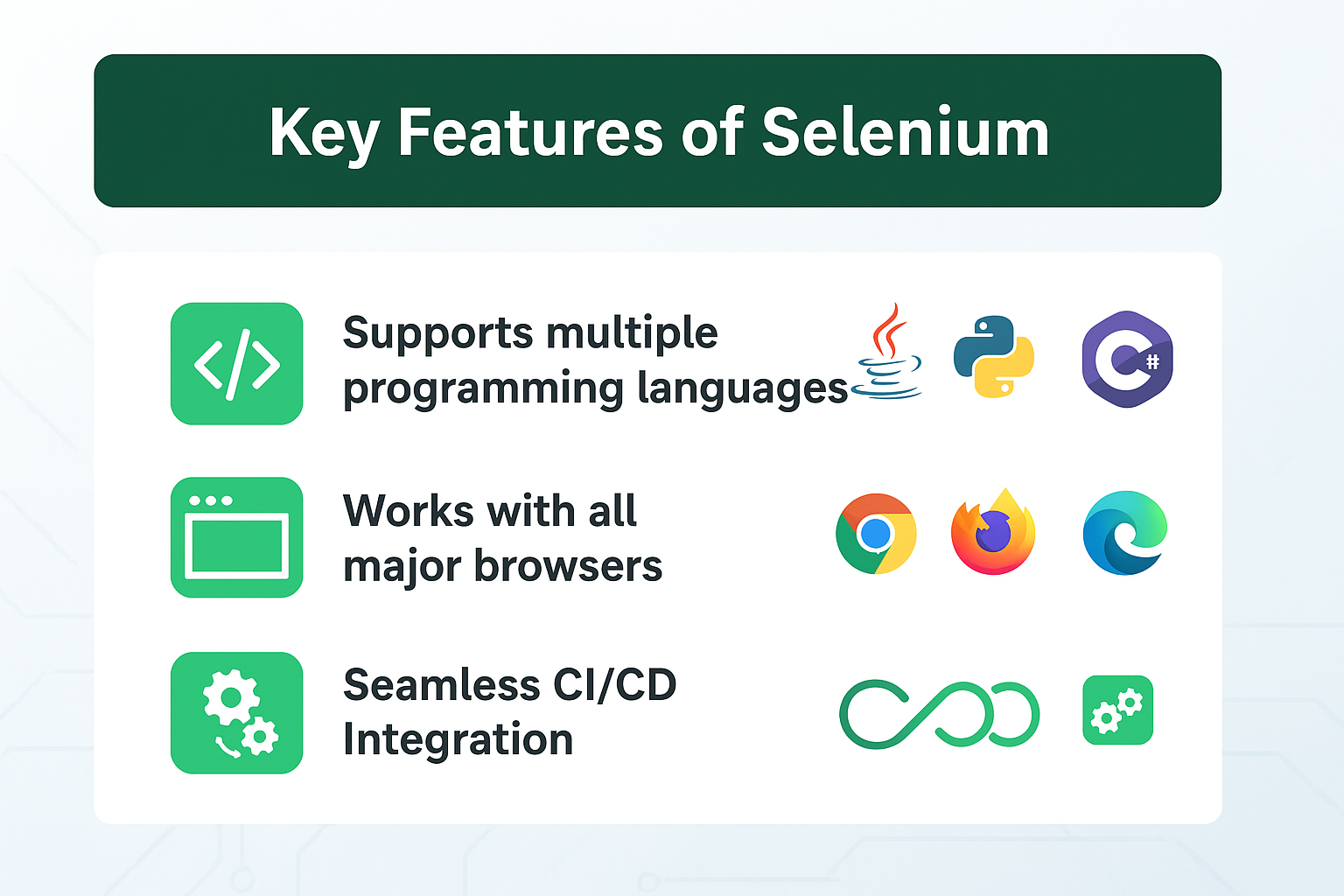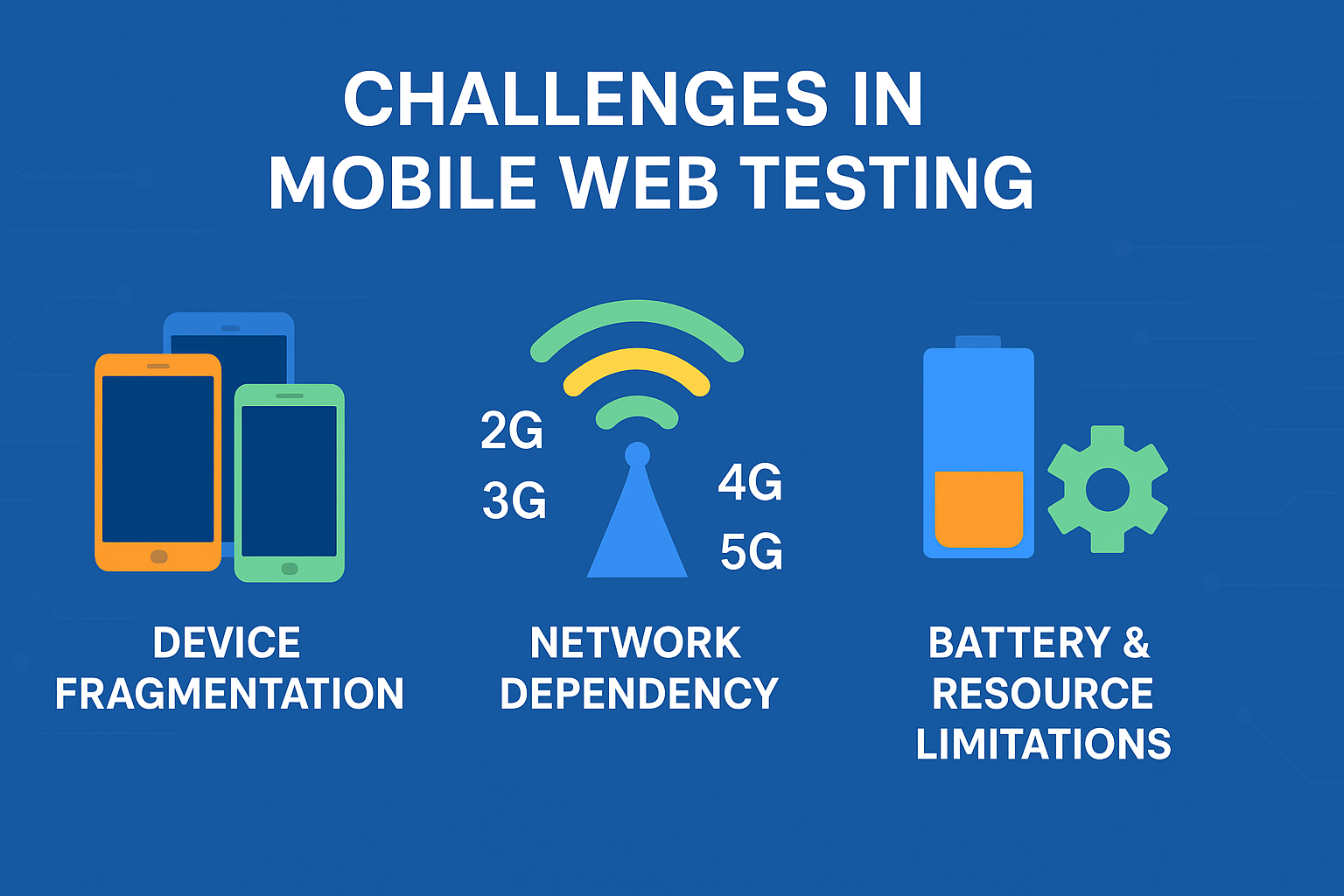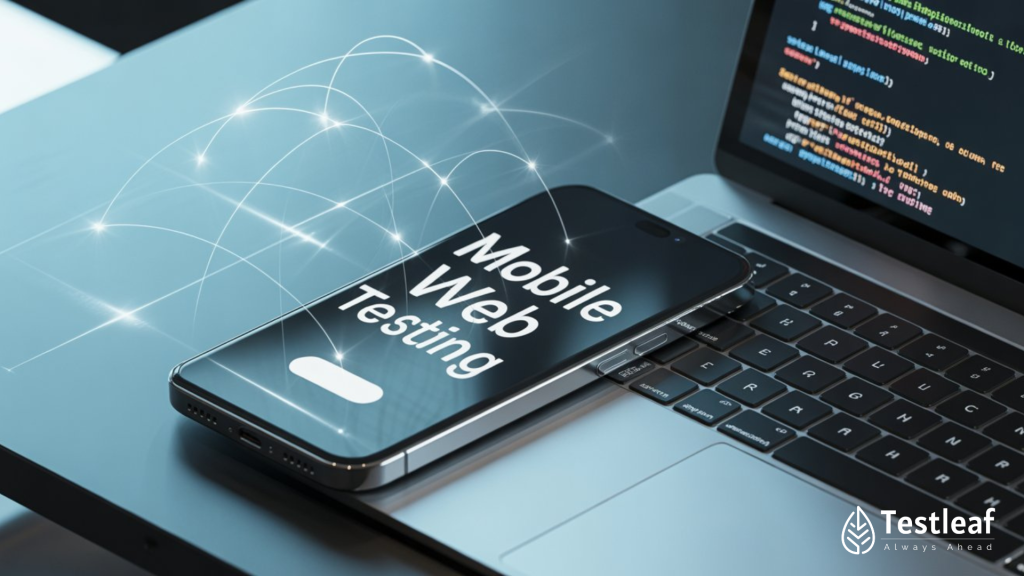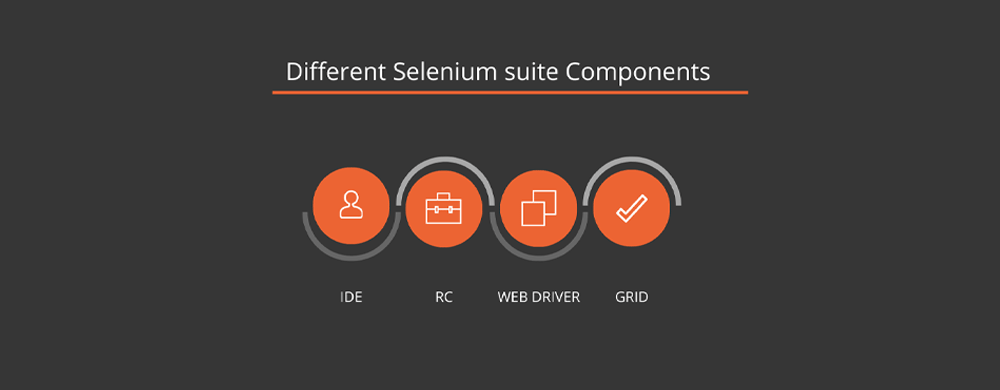Introduction
The digital world is moving faster than ever, and users expect flawless experiences across desktop, tablets, and mobile devices. This is where mobile web testing becomes critical. Tools like Selenium and Appium make automation seamless, ensuring apps and websites run smoothly everywhere. Let’s explore how combining Selenium and Appium can revolutionize your testing approach.
Understanding Mobile Web Testing
Mobile web testing is all about checking how websites perform on smartphones and tablets. Think of it as ensuring your site looks just as good on a small mobile screen as it does on a big desktop monitor. Since more than half of global web traffic comes from mobile devices, ignoring this could cost businesses customers and credibility.
Overview of Selenium
Selenium is one of the most popular open-source tools for web automation. It allows testers to interact with web elements, simulate clicks, and perform validations automatically.
Key features of Selenium:
- Supports multiple programming languages like Java, Python, and C#
- Works with all major browsers (Chrome, Firefox, Safari, Edge)
- Integrates with CI/CD pipelines seamlessly

In short, Selenium is the backbone of modern web testing.
Appium at a Glance
Appium, on the other hand, is like Selenium’s sibling—built for mobile applications. It’s also open-source and works across both Android and iOS platforms.
Key highlights:
- Supports native, hybrid, and mobile web apps
- Doesn’t require app code modification
- Works with real devices, emulators, and simulators
With Appium, testers can achieve cross-platform automation without reinventing the wheel.
Selenium vs Appium: Understanding the Difference
While Selenium focuses on web browsers, Appium specializes in mobile platforms. If you want to test a website’s mobile version, combining both gives you unmatched flexibility.
The Need for Integration
Testing on desktops alone doesn’t cut it anymore. Mobile web usage is skyrocketing, and businesses can’t afford to deliver buggy mobile experiences. Integrating Selenium with Appium ensures:
- Wider device coverage
- Realistic test scenarios
- Faster detection of UI issues
Setting Up Selenium for Web Testing
Getting started with Selenium is straightforward:
- Install Java or Python (depending on your preference).
- Add Selenium WebDriver libraries.
- Configure browser drivers like ChromeDriver or GeckoDriver.
Once done, you’re ready to write automated test scripts.
Configuring Appium for Mobile Testing
To use Appium:
- Install Node.js and Appium server.
- Download device SDKs (Android Studio for Android, Xcode for iOS).
- Connect to emulators or plug in a real mobile device.
Now, you’re set to run mobile automation tests.
How Selenium and Appium Work Together
Here’s the magic: Selenium test scripts can be extended with Appium drivers to run on mobile browsers. For example, you can test how your e-commerce checkout works on Chrome (desktop) and Chrome Mobile simultaneously.
Writing Your First Test Script
A simple Selenium script logs into a site. With Appium, that same script can run on a mobile browser, ensuring login works seamlessly across devices.
Best Practices for Mobile Web Testing
- Always test on multiple screen sizes.
- Use cloud-based platforms like BrowserStack or Sauce Labs.
- Validate performance under varying network conditions.
Challenges in Mobile Web Testing
Some of the common challenges include:
- Device fragmentation (hundreds of Android/iOS models)
- Network dependency (2G, 3G, 4G, 5G impact performance)
- Battery and resource limitations

Overcoming Mobile Testing Challenges
With Selenium and Appium integration, you can:
- Run parallel tests using Selenium Grid.
- Use Appium drivers for native gestures like swipes and taps.
- Leverage cloud infrastructure to cover maximum device diversity.
Learning Selenium the Right Way
While resources are available online, structured training ensures you learn faster. A professional Selenium training program equips you with real-world projects and hands-on practice.
If you’re based in India, Selenium training in Chennai is particularly popular due to the city’s IT ecosystem. Many institutes offer practical Selenium courses, helping you land automation testing roles quickly.
Future of Mobile Web Testing
The future is bright and AI-driven. Soon, we’ll see:
- AI-powered test case generation
- Self-healing test scripts
- Cloud-first testing becoming the standard
Staying ahead means embracing tools like Selenium and Appium now.
Conclusion
Mobile web testing isn’t optional anymore—it’s a necessity. By combining Selenium and Appium, testers can cover both desktops and mobile devices, ensuring flawless user experiences. With the right training—like a Selenium course in Chennai—you can master automation and future-proof your career.
FAQs
- Can Selenium alone test mobile applications?
No, Selenium is primarily for web browsers. You need Appium for mobile apps. - Why should I integrate Selenium with Appium?
Because together, they allow you to test across desktops and mobile devices seamlessly. - Is Selenium training in Chennai worth it?
Yes, Chennai is a hub for IT and software testing, offering strong placement opportunities. - What devices can Appium support?
Appium works with both Android and iOS, including real devices and emulators. - How do I start a career in mobile test automation?
Begin with a Selenium course, practice with Appium, and gradually work on real-world projects.
We Also Provide Training In:
- Advanced Selenium Training
- Playwright Training
- Gen AI Training
- AWS Training
- REST API Training
- Full Stack Training
- Appium Training
- DevOps Training
- JMeter Performance Training
Author’s Bio:

As CEO of TestLeaf, I’m dedicated to transforming software testing by empowering individuals with real-world skills and advanced technology. With 24+ years in software engineering, I lead our mission to shape local talent into global software professionals. Join us in redefining the future of test engineering and making a lasting impact in the tech world.
Babu Manickam
CEO – Testleaf








